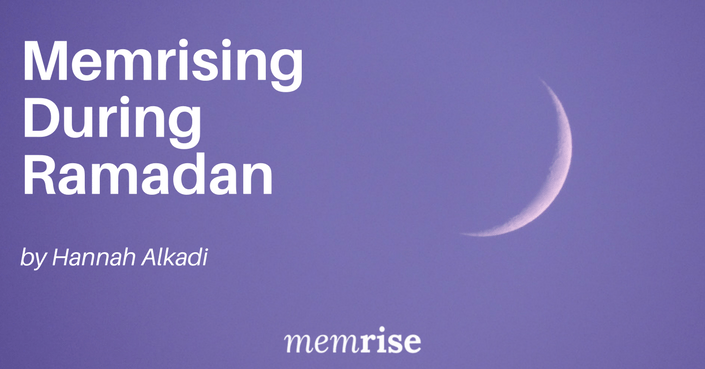I’m a “one-and-a-half” (my father was born in Lebanon, my mother in America) generation Arab who can’t speak or read Arabic fluently. More so than finding pork-alternative meals at restaurants, this is another challenge for me practicing Islam.
Muslims believe that the Qur’an was divinely revealed in Arabic. There are “translations” available in every language, but in order to understand the essence of the text, it’s crucial to learn Arabic because of its detail.
من جدّ وجد (man jadda wa jadda) — “whoever strives shall succeed.”
For example, if I tell you that the translation of الله (Allah) is “God,” that’s only partly correct. The Arabic particle ال (al) means “the” and إله (ilah) means “god” — so a more accurate translation would be “The God,” as in the only god that Muslims believe exists. Or I could tell you that two of His names, الغفّار (Al Ghaffar) and الغفور (Al Ghafoor) both mean “The Forgiving.” In reality, they are the “The Repeatedly Forgiving” and “The Much Forgiving.” These nuances are lost in English, and make those specificities harder for the non-Arabic speaker to catch.

As the Arabic phrase goes, من جدّ وجد (man jadda wa jadda) — “whoever strives shall succeed.”
Despite having over 200 million Arabic speakers in the world, there aren’t many apps out there to learn Arabic as you could with Spanish or French.
This past month was the holy month of Ramadan, and I had several goals for myself to be productive and pious. One of those goals was to learn more Arabic words to help me read the Qur’an without a translation. Despite having over 200 million Arabic speakers in the world, there aren’t many apps out there to learn Arabic as you could with Spanish or French. One reason is because the text goes from right-to-left, which makes it complicated for app developers to code in.
The last days of Ramadan are especially important to Muslims, as we want to finish off the month strong. I started to fast from social media, piling every non-productive app I had into a single folder on my phone. Instead of complaining via tweets, I would carry out my chores and cook. Instead of reading statuses, I would pull up my Qur’an app and read the verses of God.

But I still stumbled. I struggled with understanding the text, getting confused with simple words like نهار (nahaar) (day) and نهر (nahr) (river).
Enter Memrise. I was following a Snapchat account (before my social media fast, I promise) who mentioned that Memrise had Qur’anic Arabic courses. I immediately downloaded it and began taking Learn Half the Quran and Quran Booster.
It’s been a few weeks since my fast ended, and it’s bittersweet. To keep that sense of spiritual high, I’ve set reminders on my Memrise app to keep reviewing the words that I learn.
The repetition format was exactly what I needed. I could hear, type, and select the words that I was being quizzed on. Chapters that I had been reciting for months suddenly made more sense. Finally, I speed ran through the 99 Names course, finishing just before Eid (the festival marking the end of Ramadan).
It’s been a few weeks since my fast ended, and it’s bittersweet. To keep that sense of spiritual high, I’ve set reminders on my Memrise app to keep reviewing the words that I learn. I spend less time following social media accounts dedicated to Arabic and devote more time toward courses crafted around Arabic. I’ve purchased a new set of notebooks and pens — and I practice writing the new words I learn in them.
Man jadda wa jadda. I begin another month of striving and succeeding with all the tools I learned before.
 Hannah Alkadi is a stellar social media strategist and language enthusiast. She likes long walks on the beach and longer threads on Reddit.
Hannah Alkadi is a stellar social media strategist and language enthusiast. She likes long walks on the beach and longer threads on Reddit.
Check out her website, follow her on Facebook, or tweet her!










